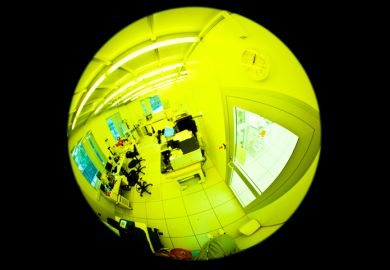Sector leaders have welcomed proposals for a diamond open access publishing platform spanning both the Republic of Ireland and Northern Ireland, after the publication of a report assessing the first stages of the project.
The Irish government has established a goal of reaching 100 per cent open access for publicly funded academic publications by 2030, as set out in the National Action Plan for Open Research. A diamond open access digital platform was proposed as part of this goal, with the PublishOA.ie project created to evaluate the feasibility of such a platform.
In a report published in the journal Publications – initially presented at the PubMet2023 conference last year – author Jane Mahony of Trinity College Dublin set out the findings of the PublishOA.ie project so far. An all-island, all-Ireland publishing platform, Dr Mahony writes, would need funding from the governments of both the Republic of Ireland and Northern Ireland, and thus would require significant cross-border collaboration.
Smaller publishers might need technical support to participate, Dr Mahony finds, while books and journals would likely require two separate platforms to meet their “differing requirements”.
Speaking to Times Higher Education, Dr Mahony said there was “a real need for dedicated resources to be committed to open access publishing” after the conclusion of PublishOA.ie. “Beyond the building of the digital platforms for book and journal publishing themselves, we believe it will be important to invest in people to assist publishers and authors in the transition to open access publishing – either by providing funding directly to publishers or establishing a central resource.”
Two “significant gaps” emerged from her research, Dr Mahony said: both a “knowledge gap on open access among academics themselves”, with many working in the arts, humanities and social sciences, as well as those publishing “multi-authored, multi-edited works”, seeing the form as unsuitable for their output.
She further identified a “trust gap” between publishers and librarians: “At its most extreme, we have heard of some librarians describing publishers as ‘predatory’ and publishers describing librarians as ‘politician activists’ who want to disrupt the academic publishing model.”
An all-island open access platform, Dr Mahony said, must maintain “rigorous peer review and quality standards”, while care must be taken to “future-proof” the platform, avoiding “reference rot” as linked online resources are removed or moved to different URLs.
Science Europe secretary general Lidia Borrell-Damián echoed this concern, saying: “An aspect that needs further attention in strengthening diamond [open access] is the long-term preservation of journals and databases. This is very much related to the provision of research infrastructures and technology tools that can support the system.”
Dr Borrell-Damián welcomed the proposal for an all-Ireland publishing platform, however, telling THE that it “would be beneficial for all researchers, readers and institutions in Ireland and beyond”.
“It will be a system that would foster, in addition to equitable and ubiquitous access, a good ground for cross-fertilisation between disciplines,” she added.
Maynooth University library head Cathal McCauley said the benefits of an all-island platform were “clear”: readers would have “immediate access to scholarly publications, which can be very helpful for a myriad of reasons ranging from their own research, policy work, health issues and so on”. The platform could also reduce readers “double dipping”, or paying for publicly funded research through taxation then paying again to read the output.
“There will be issues around engaging academic publishers who are operating in a busy and competitive environment,” Mr McCauley said. Engaging researchers could also be problematic, he added: “Many will likely be reluctant to give some of their precious time to support the peer review process of a start-up platform that does not have the same status as other publication avenues.”
Identifying “investment and cost” as major challenges, Susan Reilly, director of the Irish Research Electronic Library (IReL), said the proposed platform could help to promote the diversity of the Irish publishing system. “We have a lot of small publishers in the Irish system. What they do is valuable, but they don’t necessarily have the expertise or the infrastructure to move to open access,” she said. “This platform, if the publishers and societies are willing to buy into it, has the potential to support small publishers in Ireland to benefit from open access.”
“I don’t see a national platform replacing all of our publishing activity, but it would give researchers another option to making their research publicly available at no cost to them,” Ms Reilly said.
Register to continue
Why register?
- Registration is free and only takes a moment
- Once registered, you can read 3 articles a month
- Sign up for our newsletter
Subscribe
Or subscribe for unlimited access to:
- Unlimited access to news, views, insights & reviews
- Digital editions
- Digital access to THE’s university and college rankings analysis
Already registered or a current subscriber?
















